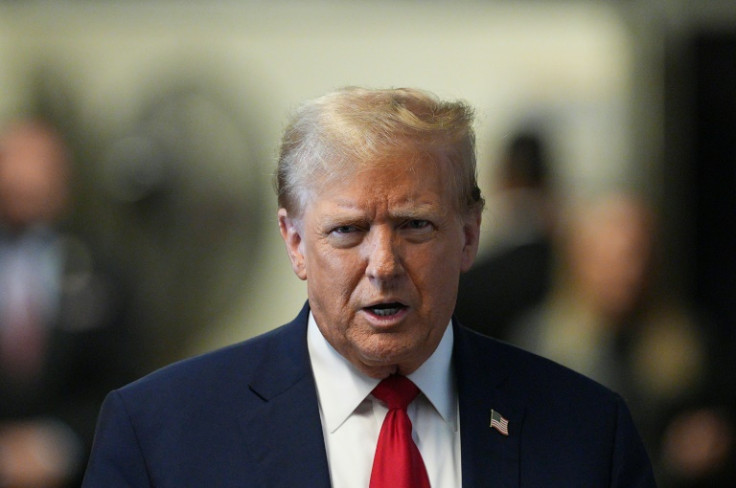
NEW YORK CITY - Former President and presumptive GOP nominee Donald Trump is once again making history as Supreme Court justices hear arguments on whether he is immune from prosecution after leaving office for any "official acts" while he was president. The question of presidential immunity after leaving office has never been decided by the Supreme Court.
Trump's argument is that he cannot be prosecuted— ever— for his "official acts'' as president unless he is first impeached, convicted by the Senate and removed from office.
Although he was impeached twice, the Senate failed to gather the two-thirds vote needed to convict. Now, SCOTUS has taken on the question on whether he should have immunity, though much of the focus remains on whether the justices will rule quickly so a trial could take place before the November election.
The presumptive GOP nominee will not be present at the Washington hearings since he is required to be present at his hush money trial in New York City.
The Supreme Court announced Feb. 28 that it would hear the case, saying it would examine "whether and if so to what extent does a former president enjoy presidential immunity from criminal prosecution for conduct alleged to involve official acts during his tenure in office." The decision immediately put the prospect of a pre-election trial in jeopardy.
A three-judge appeals court panel, including two Democratic and one Republican appointee, ruled unanimously against Trump on the immunity question in February. Trump then appealed to the Supreme Court.
The former president is accused of engaging in efforts to overturn the outcome of the 2020 election, including by seeking to recruit bogus slates of elections in a bid to alter vote counts and pressuring an array of officials, like Vice President Mike Pence, to subvert the results.
Jack Smith, the special counsel in the case, argues that no one is above the law, not even the president. Lower courts have agreed with Smith's arguments.
"Whatever immunities a sitting president may enjoy," judge Tanya S. Chutkan of the Federal District Court in Washington wrote, "the United States has only one chief executive at a time, and that position does not confer a lifelong 'get-out-of-jail-free' pass."
On the other hand, Trump is relying on a broad understanding of the separation of powers and a 1982 Supreme Court precedent that recognized such immunity in civil cases for actions taken by presidents within the "outer perimeter" of their official responsibilities.
SCOTUS has received much criticism recently, as the 6-3 conservative majority have been perceived as voting along party lines, rather than remaining impartial. Also, three of the six conservative judges were appointed by Trump, increasing tensions and skepticism.
According to NBC News, the court already handed the former president an election-year boost when it ruled last month that Colorado could not kick him off the ballot. Similarly, their delay in taking up Trump's appeal is seen by some as a victory for him.
The court's decision on absolute immunity will be a major statement on the scope of presidential power. Depending on its timing and content, the decision will also help determine whether Trump's trial will start before the election, in time to let both jurors and voters evaluate the evidence that Jack Smith, the special counsel in the case, is planning on presenting.
Most legal experts do not expect Trump to prevail on his broadest arguments, according to The New York Times. But when and how he loses may turn out to be as important as whether he loses.
If Trump wins the November election, he could order the Justice Department to drop the charges.
Two key precedents for this case go back to the 1970s. In United States v. Nixon, the court ruled that the disgraced president, then still in office, had to comply with a trial subpoena seeking tapes of his conversations in the Oval Office, rejecting his claims of executive privilege.
Later in 1982, in Nixon v. Fitzgerald, long after the former president left office under threat of impeachment, the court ruled in his favor in the civil case that was brought by an Air Force analyst who said he was fired in 1970 in retaliation for his criticism of cost overruns.
© 2024 Latin Times. All rights reserved. Do not reproduce without permission.







